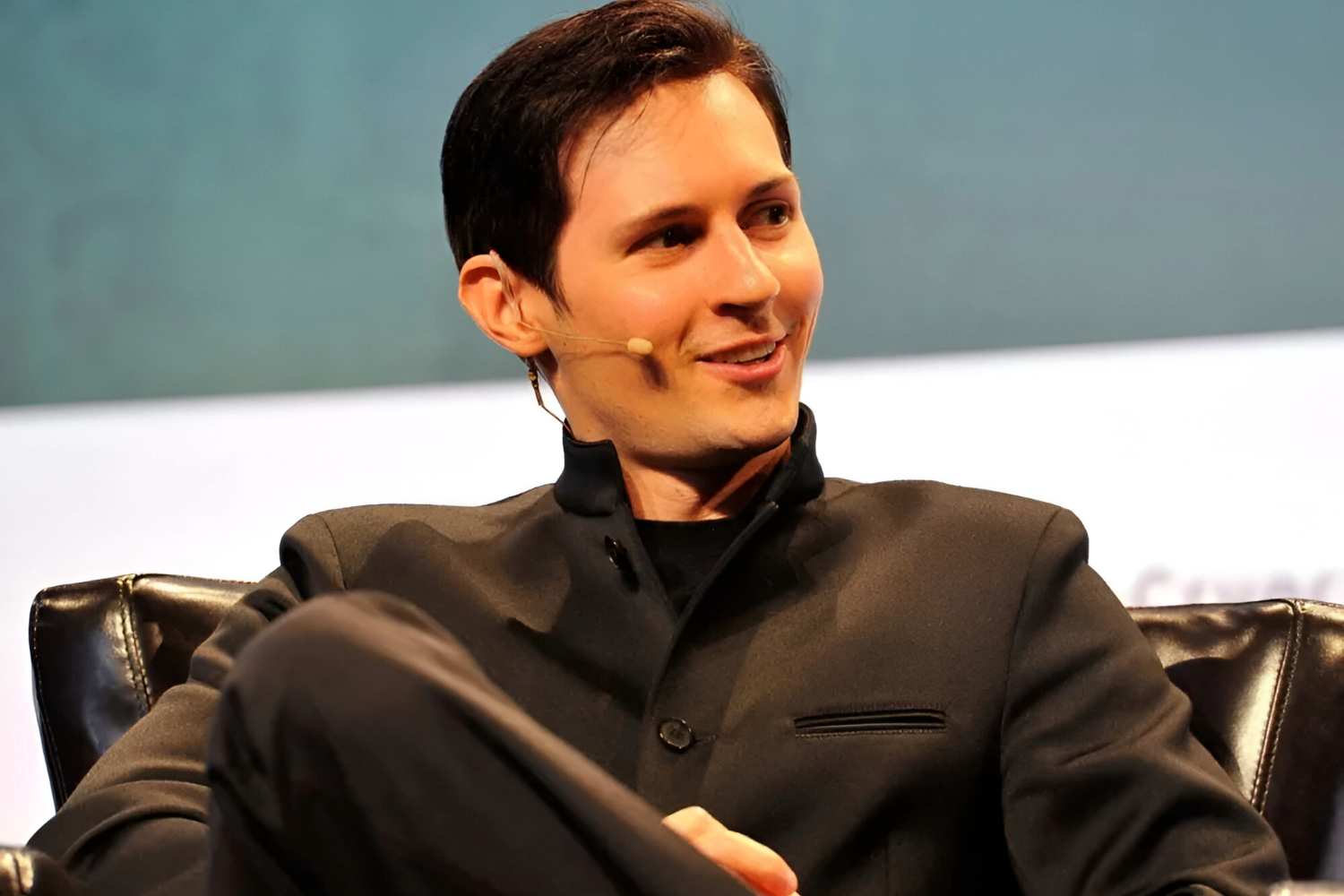If you work in AI, digital identity or cybersecurity, this agenda is for you.
We’ve gathered the must-attend summer events for professionals driving digital transformation.
Europe’s arrest of Pavel Durov: how could this happen?
On a continent where freedom of expression and respect for privacy used to be fundamental pillars, the arrest last Saturday of Pavel Durov, the visionary founder of the Telegram messaging platform, has triggered a wave of concern.
T
his detention is not an isolated incident but rather a symptom of a broader trend aiming to limit freedom of expression in the digital age and consolidate control of information in the hands of a few.
Who is Pavel Durov, and why has he been arrested?
Pavel Durov is a Russian entrepreneur and the founder of VK, Russia’s most popular social network. After clashing with the government over pressures to control the content on his platform, he went on to create Telegram, an instant messaging platform shielded from espionage, that has gained millions of users worldwide thanks to a revolutionary uncensored approach.
On the 24th of August 2024, after landing at Paris-Le Bourget airport from Azerbaijan, Durov was arrested. This followed the execution of an arrest warrant issued by the Juvenile Office (OFMIN) of the National Criminal Investigation Directorate.
The official reasons cited for his arrest focus on Durov’s alleged lack of cooperation with authorities regarding criminal activities that are said to have been carried out via Telegram (terrorism, money laundering, child pornography trafficking, etc.). However, the truth is stubborn. These accusations are vague and that the real motive behind the arrest is the authorities’ desire to control the flow of information and silence a fierce critic of the established order.
Voices in defence of Durov and the threat to freedom of expression
Durov’s arrest has been condemned by human rights advocates, politicians, digital activists, and citizens worldwide. From Vitalik Buterin, co-founder of Ethereum, to former Russian President Dmitry Medvedev, and even Elon Musk, who posted the following text on his X account: “POV: It’s 2030 in Europe and you’re executed for liking a meme”, many have expressed their outrage at the arrest. Lawyer Gonzalo Boye has also shown his support for Durov, sharing this reflection on his social media:
The strategy behind the detention of Pavel Durov is clear: to criminalise the platform’s activity based on how some of its users might use it, to threaten the platform’s owner with severe prison sentences, and to force him to do what he neither wants nor should do: give access to his servers so that the French authorities can directly or indirectly seize all the communication data shared via Telegram. This very strategy has been used previously against various encrypted messaging platforms and was the means by which they seized billions of private communications, under the guise of ‘fighting crime’.
This event is yet another direct attack on plurality and sets a dangerous precedent for any entrepreneur. The charges, officially published, include: complicity in being webmaster of an online platform to enable illegal transactions in an organised group, complicity in acquiring, transporting, possessing, offering or selling narcotics, complicity in possessing pornographic images of minors, complicity in organised fraud, criminal association for the purpose of committing a crime or an offence punishable by 5 years or more imprisonment, laundering of proceeds derived from the offences and crimes of an organised group, among others.
Allowing platforms like Telegram to operate without censorship creates a space where people can express themselves freely, organise, develop empowering narratives, and share information without fear of reprisals. This is particularly crucial in countries where freedom of the press and freedom of assembly are restricted.
The arrest of Pavel Durov is merely the tip of the iceberg of a much deeper, systemic issue: the constant erosion of our privacy.
In recent years, we have witnessed how social media has become the epicentre of a new form of social control. Beyond the explicit censorship of all kinds of content, we are seeing a subtle manipulation of information through algorithms that shape our opinions and behaviours. But that’s not all. Our personal data, from our most intimate preferences to our consumption habits, is being collected, analysed, and sold without our genuine consent. Telegram doesn’t allow people to be spied on. It protects its users to the fullest extent, enabling them to create opinion groups and fostering debate. It prioritises individuals over corporations and governments.
The European Union, a pioneer in data protection with the General Data Protection Regulation (GDPR), seemed to have set a hopeful precedent. However, the reality is quite different. Today’s Europe, the one that arrests a tech humanist like Pavel Durov, should be outraged, but instead, it is complicit in a rotten system that seems to have forgotten the principles that inspired this legislation. Privacy protection, a fundamental right, has become an empty promise.
European institutions, which are supposed to ensure the enforcement of the GDPR, seem to look the other way while large tech corporations continue to violate our rights. The complicity of these institutions is evident and raises serious doubts about their commitment to protecting citizens.
Durov’s arrest in a “first world” country is a stark reminder that the fight for privacy is a continuous battle. It’s not just about defending our right to think and express ourselves freely, but also about protecting our identity—our very being as citizens.
The fear of the political oligarchy
Traditional media, largely controlled by the political oligarchy, are much easier to manipulate and censor than decentralised digital platforms like Telegram. Lacking control over these new networks, those in power see them as a threat to their authority and attempt to curb them in the most blatant ways possible.
Accusations of failing to moderate content and not “cooperating” with the justice system are common tactics used by authoritarian governments to justify censorship and the persecution of their critics. However, it is important to remember that freedom of expression does not equate to the freedom to incite hatred or violence. Durov has always advocated for the need to combat these issues, while also insisting that widespread censorship is not the solution. Moreover, he has always collaborated with the justice system, especially on issues such as terrorism, arms trafficking and paedophilia, as he explained in an extensive interview with Tucker Carlson in April, a clip of which you can watch below. At the end of the article you can watch the full interview.
That is not the issue. The problem is that governments cannot tolerate the existence of a space of freedom that they cannot manipulate, where people can express themselves anonymously. In the interview with Carlson, Durov explained that he founded Telegram as a true alternative. He has never been afraid of losing revenue or standing up to giants like Apple or Google in order to defend his project, which is not driven by political interests. Nor was he afraid to leave Russia due to conflicts with the administration that began when he refused to remove information about opponents of the Putin regime. In fact, he remains optimistic about the platform’s future. We shall see what happens in the wake of this arrest.
The struggle for a space of freedom
Durov has refused to become a censor in the service of the state. In doing so, he has shown immense courage and a deep commitment to the principles of freedom and privacy. However, his decision has come at a great cost. The authorities view his refusal to monitor everyone’s messages for the actions of a few who might cause harm as making him complicit in activities such as terrorism. This is a serious and false accusation intended to discredit Durov and his project.
It is somewhat paradoxical that while Pavel Durov faces the possibility of spending twenty years in prison, Mark Zuckerberg, CEO of Facebook, has emerged virtually unscathed from the accusations levelled against his company. Numerous families have publicly reported that their children have been victims of cyberbullying, self-harm, and even exposure to paedophilic content through Meta’s platforms.
During the hearings in the United States Congress, Zuckerberg offered little more than generic apologies, without taking concrete responsibility for the harm caused. When the business model is the collection and monetisation of our personal data, the consequences seem minimal.
A step closer to slavery
The arrest of Pavel Durov is yet another example of the growing trend towards information control and mass surveillance— a movement more characteristic of China than “civilised” Europe.
The hashtag #freepavel continues to gain traction on social media, fuelled by fears that in the coming weeks, he might be “poisoned” or die under “mysterious circumstances.”
If we allow this intolerable situation to persist, we risk living in a world where freedom of expression is merely a memory and where our fundamental rights are constantly violated.
Enough is enough. We must once again demand that our governments respect our rights and not allow large corporations to control our lives. This is not Humanistic Technology.

























